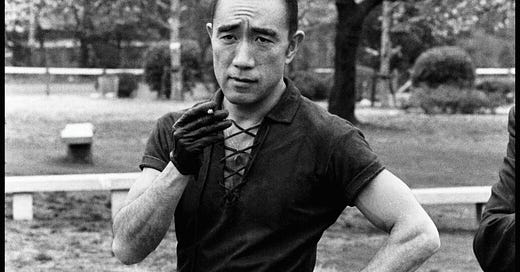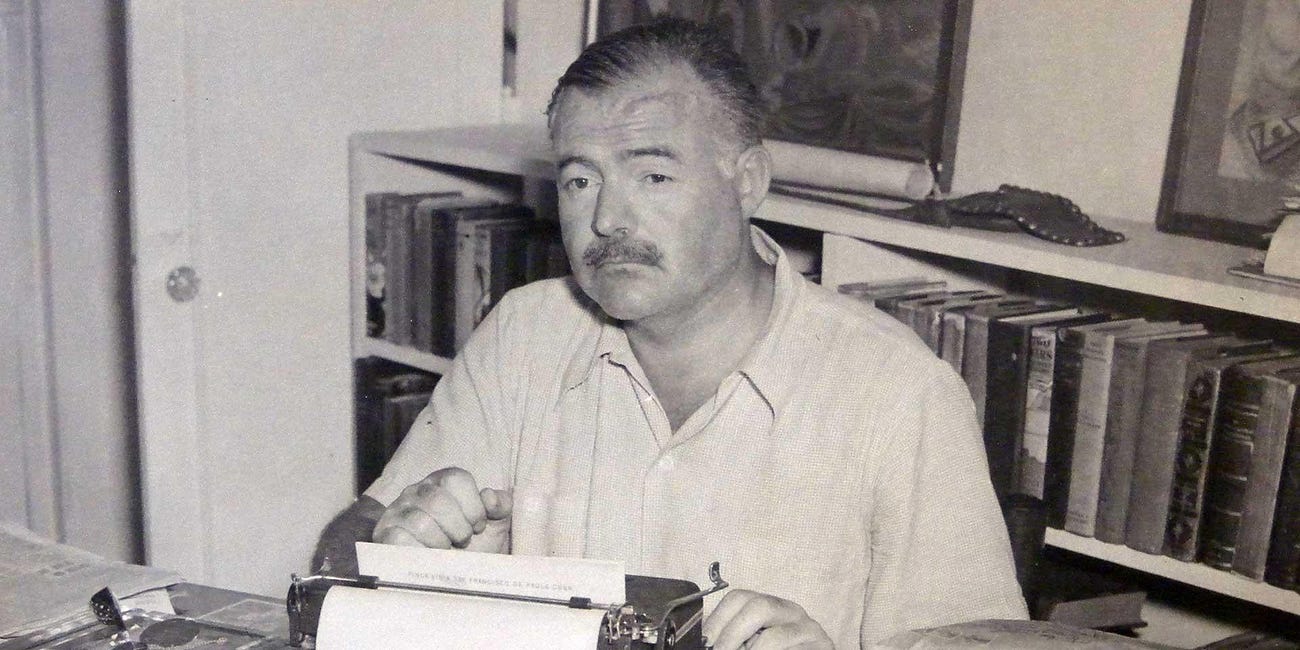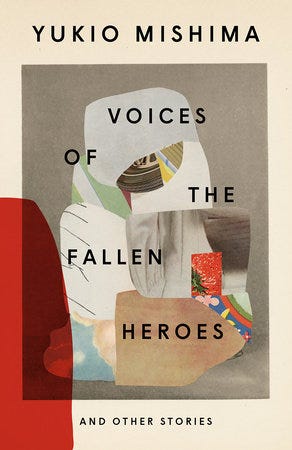
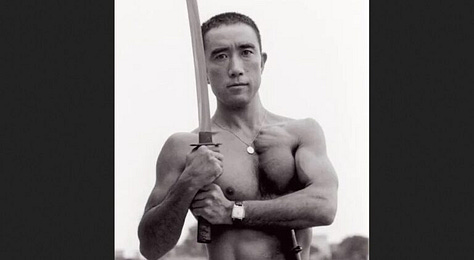
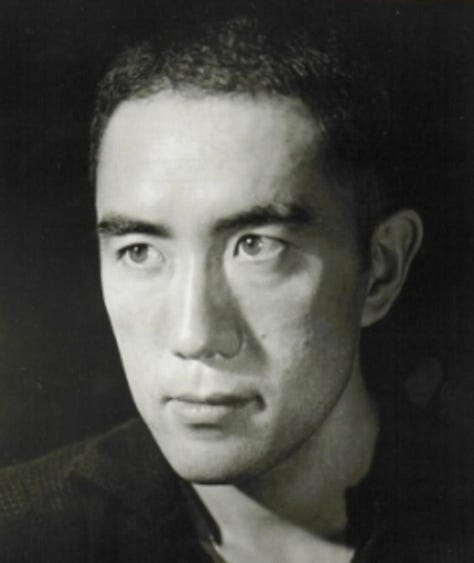
“Voices of the Fallen Heroes & Other Stories” is the remarkable new short story collection by Yukio Mishima 55 years after his very public death in 1970. Never before published in English, the collection consists of 14 short stories. Although written in the 1960s, they seem tailor-made for today.
Mishima's impact on Japanese literature is profound. He was nominated for a Nobel Prize in literature five times, but never won. His razor-sharp prose centers around Japanese history and aesthetics even as it grapples with Japan’s identity after its catastrophic defeat in WWII, the resulting collective trauma, homoeroticism, male intimacy, and the struggle between the individual and society, tradition and modernity.
As always, Mishima delves into the depths of the human experience, forcing readers to confront the darker aspects of life. But he intersperses moments of humor and playful banter into his writing as well.
Regarding his personal life, Mishima had an unusual upbringing. His grandmother took him to live with her and did not let him to go into the sun, play sports, or have friends. The only companions permitted were female cousins and their dolls. After returning to his family at age 12, his father would raid to boy’s room in search of books and writings, which were considered effeminate. At age 16 when a literary magazine published his writing, they gave him the name we know him by, a pen name, to shield him from his father’s ire.
Whispers from the battlefield
Released this year on the 100th anniversary of his birth, “Voices of the Fallen Heroes & Other Stories” is the culmination of the exhaustive research that is evident in all his work, making it valuable historical literature today even though it was written not as history but in the tradition of post-modernist literature.
Whether set in the lush landscape of rural Japan or in the fast-paced city, his stories resonate with an intensity that makes them indelible. His short stories appear to have been hurriedly written as if to placate some impulse that arose while working on more substantive projects.
“The Dragon Flute” is set in military barracks after a long day as a “tall and fit” soldier plays a Japanese flute. He plays a folksong about a prince so gentle looking and handsome he had to wear a mask into battle. The song transports the author to a time when warriors set out to be both fierce and delicate according to Shinto tradition.
“From the Wilderness” is the unembellished telling of a crazed fan who broke into Mishima’s house in real life, imploring the writer to meet and “tell him the truth.” It reads more like news than a literary work.
“Voices of the Fallen Heroes,” the last story in the collection, confronts the ghosts of the past when a séance conjures the angry spirits of deceased Japanese officers and kamikaze pilots. Unafraid to challenge the prevailing narratives, the chilling tale is an exploration of identity, desire and loss in a time when the Japanese public felt it was losing more than it could bear in becoming a “rootless country.”
Warrior culture in the Shinto tradition features prominently in Mishima’s work and life. Shinto, Japan’s ancient indigenous religion, against all odds, remains its dominant religion today. Buddhism is a close second.
It was Shinto philosophy, much like the Norse mythology of the inner circle of Germany’s Nazi party, in fact, that led up to Japan’s ill-fated conquest of China in WWII which thrust it head-on into ultimate defeat. Shinto and Norse mythology made sense in the past when each tribe was on its own and had to constantly guard against surprise attacks. But transcendence into ultimate truth is much better encapsulated by the peaceful, life-affirming teachings of Buddha or Jesus.
But people perish for lack of knowledge. Mishima founded the Tatenokai (“Shield Society”), a private army, in 1968 to restore the emperor and act as a counter-weight to the excesses of Japan’s commercialism.
Trigger warning. Mishima’s untimely death at age 45 was as dramatic as his writing. In 1970, the author led his group of men in a failed takeover of a local military outpost, then ended his own life in an elaborate Samurai ritual leaving a great deal of writing for a young man: 34 novels, 35 books of essays, 50 plays, an opera libretto, a film script, and 25 short story collections. “Voices of the Fallen Heroes” is the 26th.
In the end, Yukio Mishima remains a complex and controversial figure worth studying.
“Voices of the Fallen Heroes and Other Stories” by Yukio Mishma, Penguin Random House, $17.00, https://www.penguinrandomhouse.com/authors/20849/yukio-mishima
Vivid Descriptions
Alice Walker wonders if it's possible to write a story/novel without conflict. She believes it is possible and I concur. To do so, apply Walker's highly effective technique of simply putting "a small picture into the mind of the reader. Her method is not so different from
A completely AI generated post (except for my comments in Italics)
AI, tell me a bedtime story in 300 words or less.

